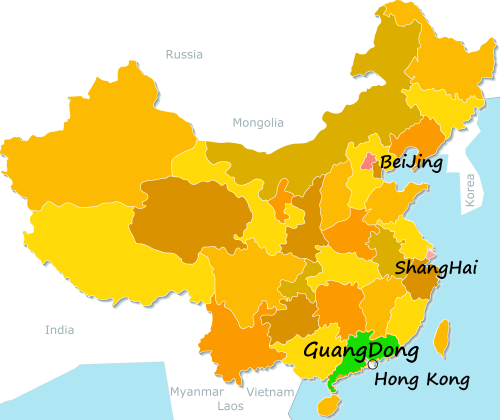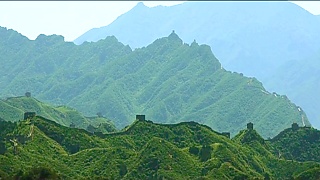
|
With SiWen Li ...
The wonders of YunNan province
Yunnan Province, located in the southwestern part of China, is a land of breathtaking natural beauty, rich cultural heritage, and diverse ethnic traditions. From towering mountains and deep gorges to ancient towns and vibrant festivals, Yunnan offers something for every traveler. Here’s a detailed guide to the wonders of Yunnan.
Natural Wonders
Yunnan is home to some of China’s most stunning natural landscapes. Here are the must-see natural wonders:
1. Stone Forest (Shilin)
Located near Kunming, the Stone Forest is a UNESCO World Heritage Site featuring towering limestone formations that resemble a forest made of stone.
The area is rich in Karst geology and offers scenic walking paths, caves, and ethnic Yi cultural performances.
2. Tiger Leaping Gorge
One of the deepest gorges in the world, Tiger Leaping Gorge is located on the Jinsha River, a tributary of the Yangtze.
It offers breathtaking hiking trails with views of snow-capped mountains, roaring rapids, and dramatic cliffs.
3. Yuanyang Rice Terraces
These UNESCO-listed rice terraces are a masterpiece of agricultural engineering, created by the Hani people over centuries.
The terraces are especially stunning at sunrise and sunset, when the water-filled fields reflect the sky like mirrors.
4. Meili Snow Mountain
Part of the Hengduan Mountain Range, Meili Snow Mountain is a sacred site for Tibetan Buddhists.
Its highest peak, Kawagebo, is one of the most challenging mountains to climb in the world.
5. Pudacuo National Park
Located near Shangri-La, this park is part of the Three Parallel Rivers UNESCO World Heritage Site.
It features pristine lakes, wetlands, and forests, as well as diverse flora and fauna, including the rare Yunnan snub-nosed monkey.
Cultural and Historical Wonders
Yunnan’s rich cultural heritage is reflected in its ancient towns, temples, and ethnic traditions. Here are the top cultural wonders:
1. Lijiang Ancient Town
A UNESCO World Heritage Site, Lijiang is known for its well-preserved ancient architecture, cobblestone streets, and intricate canal system.
The town is home to the Naxi people, whose unique Dongba culture is showcased in local music, art, and festivals.
2. Dali Ancient Town
Dali is famous for its historic charm, with ancient city walls, traditional Bai-style houses, and the iconic Three Pagodas.
The town is a gateway to Erhai Lake, a scenic freshwater lake surrounded by villages and temples.
3. Shangri-La (Zhongdian)
Known as the “Land of Eternal Peace and Perfection,” Shangri-La is a Tibetan-influenced region with stunning monasteries, grasslands, and snow-capped mountains.
Key attractions include the Songzanlin Monastery and the Dukezong Ancient Town.
4. Xishuangbanna
This tropical region is home to the Dai people and features lush rainforests, Buddhist temples, and vibrant water-splashing festivals.
Don’t miss the Wild Elephant Valley and the Dai Ethnic Park.
5. Jianshui Ancient Town
Jianshui is known for its well-preserved Confucian Temple, ancient wells, and traditional courtyard houses.
The town is also a gateway to the stunning Double Dragon Bridge and the Swallow Cave.
Ethnic Diversity
Yunnan is home to 25 of China’s 56 recognized ethnic groups, making it one of the most culturally diverse provinces in the country. Key ethnic groups include:
Yi: Known for their vibrant festivals and traditional torch celebrations.
Bai: Famous for their Three-Course Tea ceremony and traditional architecture in Dali.
Naxi: Known for their Dongba script and ancient music in Lijiang.
Tibetan: Influential in Shangri-La, with a rich tradition of Buddhism and nomadic culture.
Dai: Known for their water-splashing festival and tropical lifestyle in Xishuangbanna.
Festivals and Events
Yunnan’s ethnic diversity is celebrated through vibrant festivals and events. Some of the most famous include:
Torch Festival (Yi People): A lively celebration featuring torch-lit processions, dancing, and traditional music.
Water-Splashing Festival (Dai People): A joyful event where people splash water to wash away bad luck and welcome the new year.
Third Moon Fair (Bai People): A traditional market and cultural festival held in Dali.
Shangri-La Horse Racing Festival: A showcase of Tibetan culture, featuring horse races, singing, and dancing.
Local Cuisine
Yunnan’s cuisine is as diverse as its culture, with unique flavors and ingredients. Must-try dishes include:
Crossing the Bridge Noodles (过桥米线): A famous Yunnan dish featuring rice noodles served in a flavorful broth with various toppings.
Xuanwei Ham: A cured ham with a rich, smoky flavor, often used in soups and stir-fries.
Erkuai: A type of rice cake that can be stir-fried, grilled, or served in soups.
Yunnan Cheese (Rushan): A traditional dairy product made by the Bai people, often grilled or fried.
Pu’er Tea: A famous fermented tea from Yunnan, known for its earthy flavor and health benefits.
How to Get There
Yunnan is well-connected by air, rail, and road. Key entry points include:
Kunming: The provincial capital and main transportation hub, with an international airport and high-speed rail connections.
Lijiang: Accessible by flight or train from Kunming.
Dali: Connected to Kunming by high-speed rail and bus services.
Shangri-La: Accessible by flight or bus from Kunming and Lijiang.
Travel Tips
Plan for Altitude: Some areas, like Shangri-La, are at high altitudes. Take time to acclimatize and stay hydrated.
Respect Local Customs: Yunnan’s ethnic groups have unique traditions and beliefs. Be mindful and respectful when visiting their communities.
Pack for All Weather: Yunnan’s climate varies widely, from tropical in Xishuangbanna to cold in Shangri-La. Bring layers and rain gear.
Learn Basic Mandarin: While some locals speak English, knowing a few Mandarin phrases can enhance your experience.
Why Visit Yunnan?
Yunnan Province is a treasure trove of natural beauty, cultural heritage, and ethnic diversity. Whether you’re exploring ancient towns, hiking through dramatic landscapes, or immersing yourself in vibrant festivals, Yunnan offers an unforgettable travel experience.
|

 ZhongShan 中山 GuangDong province
ZhongShan 中山 GuangDong province





